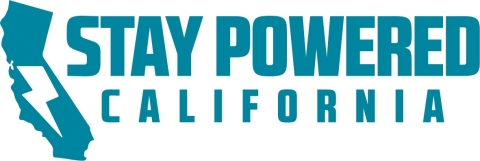Portable Generator Manufacturers’ Association Fights California Ban
Portable Generator Manufacturers’ Association Fights California Ban
Industry group requests exemption in new proposed legislation and regs that outlaw portable generators in the state
CLEVELAND--(BUSINESS WIRE)--A seemingly innocuous air pollution proposal before the California Legislature could ban the sale of portable generators in the state, and have a life-threatening impact on how Californians prepare for and respond to power outages, wildfires, and other calamities.
Assembly Bill 1346 (Berman) would compel the California Air Resources Board to adopt regulations by July 1, 2022, to prohibit emissions from all small off-road engine equipment (SORE) including portable generators. While it may be intended to promote the use of battery-operated lawn and garden equipment, it will also result in banning the sale of portable generators in the state as soon as 2024.
The proposal assumes that portable generators could be replaced with so-called ZEE generators (zero-emission equipment). However, ZEE “generators” rely on battery power and electricity for charging that is not available during power outages and natural disasters. These ZEE units are typically five to twenty times the cost of gasoline-powered portable generators, yet they only provide backup power for a short period of time (typically 1-2 hours) before the battery is discharged. Furthermore, once the batteries are discharged, they cannot be recharged during power outages without expensive solar panels or expensive spare charged batteries.
For these reasons, the Portable Generator Manufacturers’ Association (PGMA) is requesting an exemption for portable generators be included in the proposal.
An estimated 1.5 million portable generators exist in California, primarily used by residents during natural disasters such as wildfires, and during the frequent rolling blackouts enacted by local utilities to mitigate demand on the power grid or protect against fire danger. During these times, average Californians rely on portable generators to power their freezers, refrigerators, water pumps, communication devices, and even life-sustaining medical equipment.
PGMA estimates that the average load homeowners need during these periods can be fully powered by a typical portable generator for 10 to 12 hours. After a simple refueling, the portable generators are good for another 10 to 12 hours. In contrast, a comparable ZEE unit required under the new proposal would power that same load for a scant 35 minutes to three hours, after which there would be a need for fresh batteries or a re-charge from unreliable and expensive solar panels.
“No matter how well-intentioned this bill might be, it makes a critical error in equating portable generators with other small off-road engine equipment,” said Joseph Harding, technical director of PGMA.
“The use of other small off-road engine equipment is often discretionary and planned. But when someone turns to a portable generator, it’s out of necessity. It’s to sustain life—keep food from spoiling, keep water available, to maintain communication with the outside world, even keep vital medical equipment operating. Nothing else meets the affordability of a portable generator when it comes to performing those critical functions in crisis conditions. Banning California residents from purchasing and possessing portable generators will surely lead to loss of life.”
PGMA has formally requested that the bill’s author exempt portable generators in AB 1346. To let your state representative or senator know that you support this exemption, visit www.StayPoweredCalifornia.org.
Contacts
Pete Zeller
216.579.6100 ext. 2
email: pete@CunninghamBaron.com
